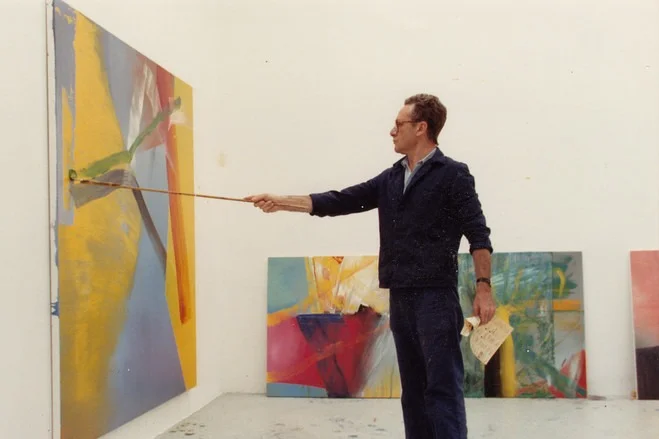working artists
The old lie goes something like: "If you do something you love, you'll never work a day in your life."
The reality is that work is work. Every day there will be at least one task that you don't want to do, and almost every day, you will do it. Work is work, whether you're doing exactly what you always wanted, or biding your time until the "dream job" (if such a thing exists) comes along.
This afternoon, I spent about 4 hours painstakingly painting in a handful of 3"x3" lineart pieces for The Goldberg Variations. Some days, four hours is too long to spend continually mixing quarter-teaspoons of precise shades of green and filling in a dozen 2mm triangles.
There is a handful of universal truths to be acknowledged when embarking on creative work. Some are ideological tenets learned through the study of art and its world (that you will doubt yourself every single day; that many will find your passion frivolous; that you will have to defend your creative rights and decisions at every turn), but others are pragmatic realities only encountered "on the job."
Progress will not look or feel like progress. Anyone who has mastered a piece of music to the best of their ability will know that less that one percent of the time spent playing it feels good. The rest is slogging through seemingly insurmountable piles of shit: injuries, exhaustion, technical quandaries, lack of motivation, lack of accountability and/or deadlines, emotional separation from the work. Frederick Seidel explained the last item perfectly: "Sometimes you finish the poem, and that last piece clicks in place. Sometimes the poem is finished with you." Nevertheless, unless you're going about your work completely without focus, goals, or sensitivity, each shift counts for something.
Creativity is exhausting. There are the usual physical afflictions, and I say with no hyperbole that any act of dance or music is highly athletic and demanding, but generally, our teachers prepare us well for this. We know when to stop, to stretch, to realize that our shoulder/ankle/neck is hurting; but we are seldom taught about mental exhaustion and its incredible difficulties. Just like any physical injury, mental depletion sidelines us for at least as long as it took us to get there. A full day of exertion may lead to days or weeks of complete creative incapacity, and every artist must -- through experience alone -- devise their own method of conquering the blankness.
Fear will be very familiar. You will not like it, but you will learn to coexist. Everything you make -- or try to make -- will shake up some familiar longing or insecurity in you. Is this all I can do? Have I wasted my time? And the dreaded: What will others think?
You will not like what you make. You may not enjoy yourself. More and more, I tend to believe that creative people make things out of compulsion, and then happen to enjoy themselves in the process. There are days when it is not enjoyable; when work is only completed by virtue of a sense of obligation, and the product is laboriously mediocre. It takes time for skill levels to meet taste levels, though, and in about 10 years, you'll start seeing some good things.
Artistic values contradict societal values. "Time management" is a good example. "Productivity" is another. Non-creatives tend not to value time spent thinking, conceptualizing, listening, feeling, &c. Often having no tangible product of these efforts, we are unable to explain why or how that time was well-spent.
Most artists I know have heard the familiar expression of misunderstanding: "You're so lucky --" (or lazy) ''all you do is paint/dance/listen to music the whole day." This statement is right about the luck. It is only a small group of people that spend most of their time doing something they enjoy, let alone something they find creatively fulfilling. But as for the rest -- that all we do is make things -- that's not quite accurate. We analyze, criticize, think, wonder, explain, listen, embody, express, reflect -- as many delightful action verbs as we can cram into a day. That's what makes it so exhausting, but also worth the expense.
Todd Henry: "The cost of inaction is vast. Don’t go to your grave with your best work inside you. Choose to die empty."
